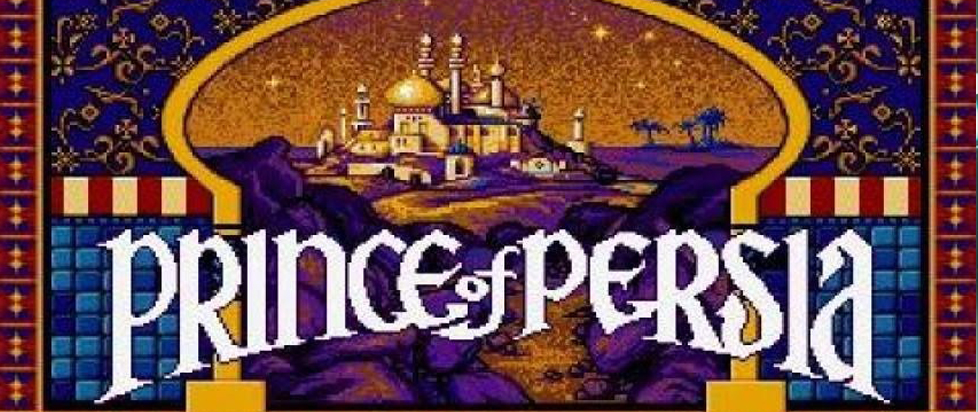
Making Leaps
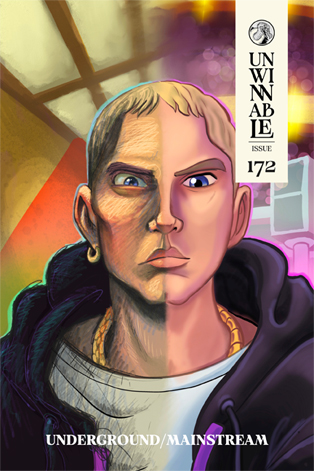
This column is a reprint from Unwinnable Monthly #172. If you like what you see, grab the magazine for less than ten dollars, or subscribe and get all future magazines for half price.
———
Analyzing the digital and analog feedback loop.
———
It’s still deep winter in my neck of the woods, which means that my mind is hibernating. This time of the year it’s difficult to pull oneself out from one’s heavy quilt of preoccupations and hopeful reveries. This last January, I haven’t been gaming very actively or widely. Partially this is due to one of my gigs, as a historical archivist. I’m often dealing with mountains of data and designing a metadata system for said data. Doing so has made coming home to play something digital and manage more data (even if in a creative aspect) a little overwhelming at times.
Yet engaging with historical documents on a regular basis has made me a lot more aware of how important and influential historical records and their preservation are on many levels. The level I’m currently most concerned with is our responsibility, whether we work directly with historical records like I do, or indirectly as individuals who curate what personal and public records we choose to engage with and preserve. I’ve been on both sides, and I can safely say now that both positions are equally culpable with regards to collective memory and posterity. The current push on social media to keep people actively aware of the interconnectedness of the genocides happening around the world and what collective liberation means is one example of this.
Whether we are raising awareness of these issues offline in our local communities, or reminding people of current events from journalists and activists on the ground via social media platforms, the daily emphasis on remembrance and archiving mindfully nowadays is strong. Especially considering how many bad actors there are out there, including the heads of said social media platforms, trying to exploit the attention economy with propaganda and heavily skewed facts.
What in the world is she going on about? Well, I’m an older player now and you’ve probably noticed that a few of my recent pieces have been about returning to the roots of what made me interested in games. Or what they’ve taught me, both creatively and politically over time. More specifically, I’m fascinated by how sometimes a certain long-running series will grow alongside you, its relationship with you and your associated subtexts with it morphing over time.
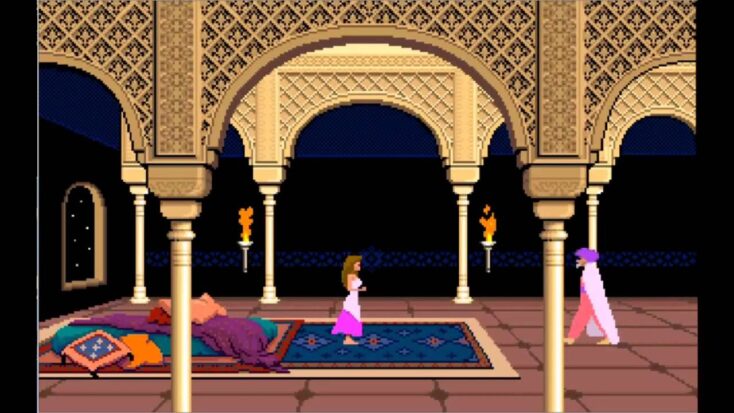
Last month, Ubisoft released Prince of Persia: The Lost Crown and revitalized the swashbuckling, often Orientalist in tone series. Prince of Persia (the 1992 Broderbund Software edition for old Macintosh computers, specifically the Mac SE/30 I believe for my family back then) was the game that first ignited my imagination. With its heavy references to Arabian Nights a-la Disney’s Aladdin and its focus on using gymnastics and sword-fighting to beat the clock and save the princess, I was fixated. I can’t say for certain that Prince of Persia was my actual first game, but it’s a strong contender. I had observed and played co-op style with my parents with titles like SimCity, SimAnt, Shufflepuck Cafe, Myst and a few miscellaneous sidescroller or top-down fantasy tactics demos of which I have faint memories. I also learned by click-clacking my way through Mario Teaches Typing at my elementary school. But none of these titles resonated with me in the same way as Prince of Persia (1992) did.
What was the difference between Prince of Persia and those other titles that bob to the surface of my memory? I don’t think it was simply the colorful graphics or the thin adventure plotline (though I did want to reunite the protagonist with his princess). I think it was more to do with the way time and physicality interacted with each other in the system. At the time, I was taking gymnastics practice after school some nights and the way you controlled the protagonist throughout the perils of Jafar’s dungeons – jumping, flipping and vaulting off high surfaces – was something I could identify with. The groundbreaking use of Mechner’s rotoscoping animation techniques made the protagonist’s movements feel very convincing to me as a child and despite having a different gender (the one that was supposed to be waiting in agonizing stasis while an hourglass’ sands decide her fate) and different circumstances, I could see myself in the “Prince”. So much so that when a kid on my school’s playground dared me to jump to fifth (or was it sixth?) monkey bar, I truly thought I could do so. I broke my left arm instead.
Prince of Persia was the first game, to my knowledge, that galvanized my imagination enough that I wanted to translate the actions I took on-screen into my everyday life off-screen and outside. Something about the mix of time-bound activity and the verisimilitude (scant and constrained by the limited frames of ’90s graphics as it was) was just potent enough that it made me believe that I, a time-bound and perpetually moving child, was capable of the same feats as the Prince.
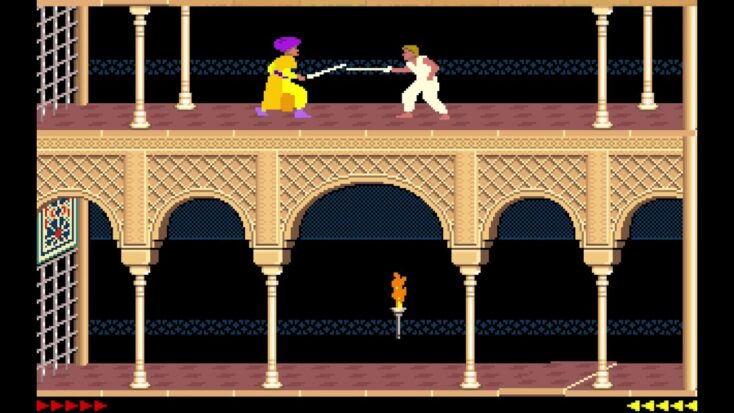
Now obviously, this is probably not exactly what went through my head back then on the playground. But I do remember that when the dare was issued to me to make that ill-timed leap of faith to the far-off monkey bar, I wasn’t just trying to impress my schoolmates (who had previously bullied me into playing a damsel-in-distress during recess). I was excited to take the dare head-on because I truly believed I could do it. Because of a computer game. Just to be clear, I see this as a formative experience, not a negative one. Yes, I broke my arm, but that’s beside the point. I’ve never once regretted taking leaps of faith since (both figurative and literal). But that fall also tempered my expectations, teaching me to be more strategic and resourceful about how I conduct myself when taking risks. And to learn from each periodic fall I take as well.
Time has always been important to the PoP franchise, but the dynamics of how players experienced time shifted significantly with the Sands of Time. Up until that point of the series, time was a constraint, a way to push players to master the controls, so that they could succeed in spite of that constraint. Sands of Time’s rewind mechanic imbued players with a different kind of agency, the ability to act upon time instead of reacting to it. I don’t have as much experience playing Sands of Time, or the cringe-inducing Warrior Within which continued to use the rewinding mechanic, but I have noticed that what the rewind mechanic has done for players is make them aware of just how much potential agency they have. I think this is why Prince of Persia (2008), which centered not just the Prince’s agency but the Princess’ as well, has a special place in my heart. Dastan and Elika also learn that agency is not something individual and isolated, but fluid and exponential when teamwork is embraced to overcome epic obstacles.
Speaking of teamwork, I think another reason I strongly believe Prince of Persia was the real start of my life as a player, is because of the thrill of excitement when, while watching my mom play the title one day, she asked if I’d like to try and learn the game. Despite how much both of us struggled to master the keystrokes and combos needed to advance in the game, I rarely felt frustrated. Learning to play this game also taught me about the joy of sharing a geeky media experience with someone.
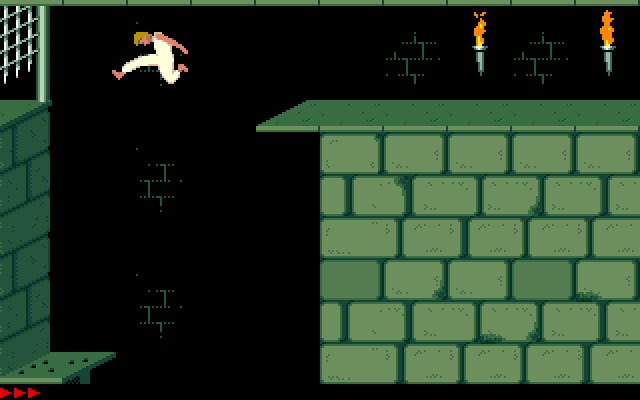
Recently I asked my mom what her perspective of the game and sharing it with me was like. She told me she found it humorous to see her young daughter hit obstacle after obstacle and at most react with a surprised yet pitiful exclamation of “Oh no, the little man is hurt” or something along those lines. I was a sweet summer child of 3 or 4 at the time and it was my first time confronting a representation of death and failure on-screen. One that softened the blow by reviving my avatar and teaching me how to continuously get up and try again. A lot of that early era of the series was about reacting to things. To the environment, to your sword dueling opponents and most importantly, to the time limit.
If games can make us aware of systems and our actions within those systems and how we could better translate thoughts into actions, why do we still insist that games are just escapist entertainment? Yes, I know that they are capitalistic objects in most instances, and therefore subject to the BS of “too big to fail”. But at the level of consumers and players of this media, why are there still so many who refuse to see how games can influence you politically? Is it the seeming absurdity of realizing that games, as silly or irreverent as they can be in their representation, can be mirrors of how different cultures around the world perceive agency?
I love that The Lost Crown is bringing together all of the elements of past Prince of Persia titles that I have enjoyed and learned from. I love that it’s the first AAA game to be localized officially in Persian (Farsi). I love that it’s the first Prince of Persia to feature Mentrix, an Iranian-born and Sufi-inspired woman composer, on its soundtrack (a far cry from the Godsmack era of Warrior Within). Not to mention how gender-diverse Ubisoft Montpellier’s creative team is, as well. The games industry is becoming more aware of the importance of including people from the cultures being represented in the process of development and localization, despite the controversies involved with doing so.
———
Phoenix Simms is a writer and indie narrative designer from Atlantic Canada. You can lure her out of hibernation during the winter with rare McKillip novels, Japanese stationery goods, and ornate cupcakes.




